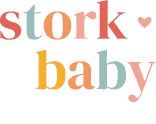Egg donation is a selfless act that allows individuals or couples struggling with infertility to achieve their dream of having a child. It’s a remarkable journey that can be incredibly rewarding, both emotionally and financially. However, like any medical procedure, egg donation comes with its own set of considerations and potential drawbacks.
In this blog post, we’ll explore the cons of egg donation, shedding light on the aspects that donors should be aware of when making this important decision.
Physical and Emotional Demands:
- Hormone Stimulation: Egg donation requires you to undergo hormone stimulation, which involves injecting hormones to stimulate your ovaries to produce multiple eggs. This process can cause physical discomfort, mood swings, and, in rare cases, side effects such as ovarian hyperstimulation syndrome (OHSS).
- Time and Commitment: Egg donation is not a one-time procedure. It involves multiple appointments and monitoring, which can be time-consuming and may impact your daily routine.
- Emotional Impact: The emotional toll of egg donation can be significant. Some donors experience stress, anxiety, or a sense of loss after the egg retrieval procedure.
Potential Health Risks:
Egg donation, like any medical procedure, carries potential health risks, including:
- Ovarian Hyperstimulation Syndrome (OHSS): Although rare, OHSS is a severe condition that can result from the hormone stimulation process, causing abdominal pain, nausea, and swelling.
- Infection: As with any medical procedure, there is a risk of infection during egg retrieval, albeit very low.
- Ovarian Damage: While extremely rare, there is a small risk of ovarian damage or complications during the egg retrieval process.
Anonymity and Lack of Control:
Egg donors often remain anonymous, and you may have no control over who uses your donated eggs or how they are used. This lack of control can be a drawback for some donors who prefer more involvement in the process.
Impact on Future Fertility:
The hormone stimulation and egg retrieval process can potentially impact your future fertility, although this risk is relatively low. It’s essential to discuss this aspect with your healthcare provider and consider how it may affect your family planning goals.
Ethical and Legal Concerns:
Some egg donors may have ethical or legal concerns about the use of their donated eggs. They may question how their genetic material is used, especially when they remain anonymous.
By thoroughly understanding the physical and emotional demands, potential health risks, anonymity, impact on future fertility, and ethical concerns, you can make an informed decision that aligns with your values and goals. Ultimately, egg donation is a personal choice, and your well-being and peace of mind should remain a top priority throughout the process.
If you want to talk to someone about whether egg donation is the right decision for you, our team at Stork Baby would be happy to answer any questions you have.


